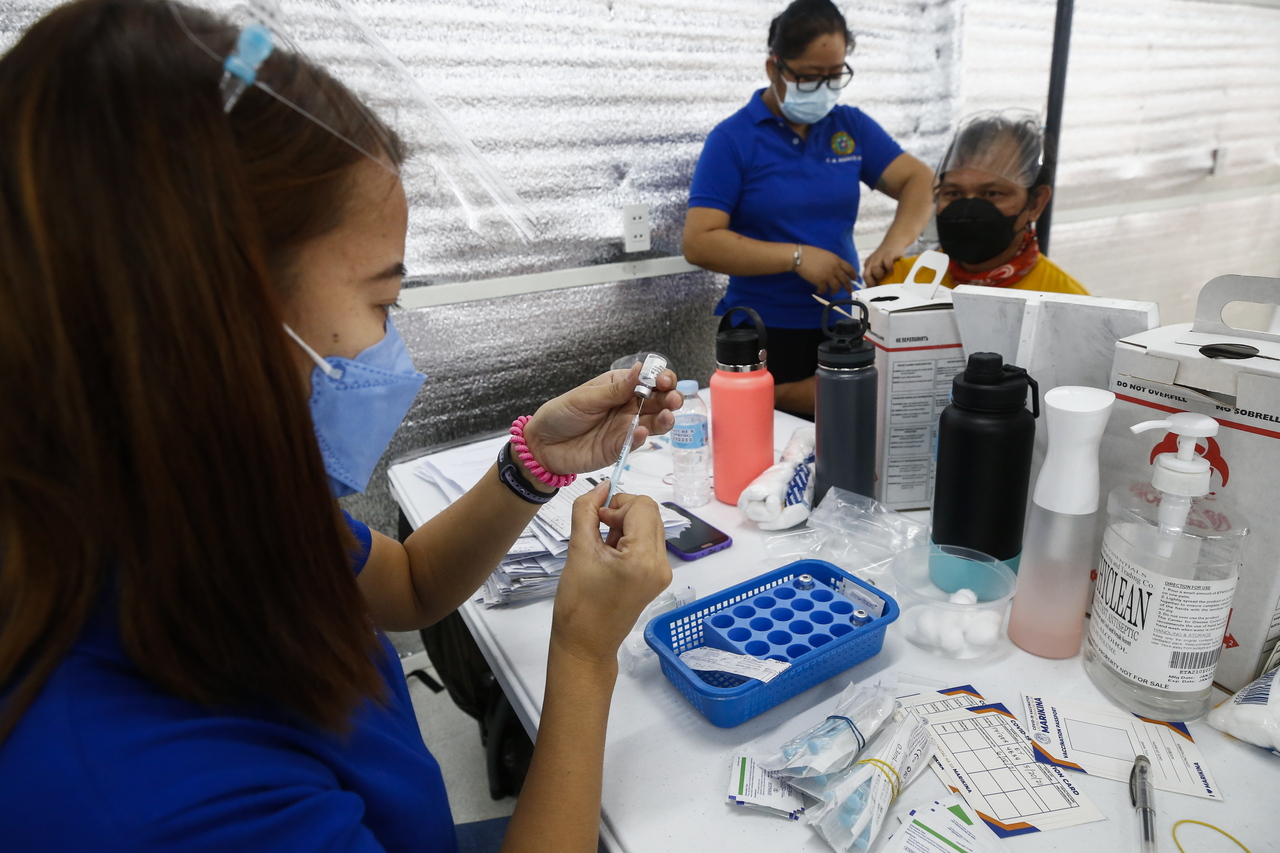Covid-19 vaccine roll-out divides Filipinos over brand preference, hesitancy
Sign up now: Get insights on Asia's fast-moving developments

Sites offering doses from US pharmaceutical firm Pfizer drew long queues.
PHOTO: EPA-EFE
MANILA - Covid-19 vaccines are driving a wedge among Filipinos, fuelling heated debates over the right to be "choosy" and widening the gap between those who eagerly want a jab and those who are still holding out.
Sites offering doses from US pharmaceutical firm Pfizer drew long queues early this week. Those with jabs from China's Sinovac, meanwhile, were seeing fewer takers.
"That was very, very dangerous," Health Undersecretary Maria Rosario Vergere said in a news briefing on Friday (May 21).
She said the large crowds seen in two sites in the capital Manila and in Paranaque city that began to dole out Pfizer's vaccine were likely "superspreader events".
Most of those queuing were the elderly and younger ones with underlying medical conditions that made them more at risk of getting Covid-19.
Health officials have since recommended a "brand-agnostic" vaccine policy. Those getting jabs would not know what brand they would get till they reach the vaccination site. If they don't like what is being offered, they can opt to walk away, but they will be placed at the end of the line.
At least six cities in Metro Manila, including the biggest one, Quezon City, have stopped disclosing what brands will be administered at their vaccination sites.
But others disagree with the policy, including Manila Mayor Isko Moreno.
"I believe - and this is a personal belief - that it is the right of the people to pick the brand he or she prefers because that is his or her body," he said.
Senators were also divided on the issue.
"Every patient has a right to full disclosure and a modicum of transparency," said Senator Imee Marcos.
But Senator Francis Tolentino said not announcing beforehand what brands are being offered at vaccine sites "is practical policy".
"A vaccine is a vaccine, no matter the brand," he said.
Dr Vergeire said getting vaccinated remains "voluntary" and people can choose whatever vaccines they want to get.
"But the government has to intervene because it sees issues with brand preference," she said. "All vaccines are equally effective."
President Rodrigo Duterte had also weighed in, telling the public not to be choosy with their vaccines, though he himself stuck to his preferred vaccine from China's Sinopharm, which had not even been approved by regulators but allowed for him on "compassionate grounds".
"Believe the government and the people you elected in the government like me… If not, you will lengthen (the time before we reach) the herd immunity," he said in his weekly address on Monday (May 17).
But a survey showed that less than half of the population trust the government's vaccine roll-out. The rest are either "uncertain, not confident in some way or not confident at all".
With over 1.1 million infections and close to 20,000 dead, the Philippines has the second-worst Covid-19 outbreak in South-east Asia, after Indonesia.
That has compelled the government to hustle for vaccines amid a global supply shortage. About 7.8 million doses have been shipped to the Philippines so far since the roll-out began in March.
But that is just a fraction of what the nation needs to vaccinate 70 per cent of its population of some 110 million and reach herd immunity.
Critics have said the roll-out's pace has been too slow. Only 3.3 million jabs have been administered so far, most of it in Metro Manila.
They also slammed the government for getting the bulk of its purchase from Sinovac instead of Pfizer, Moderna or Johnson & Johnson, which a majority of the population prefers.


